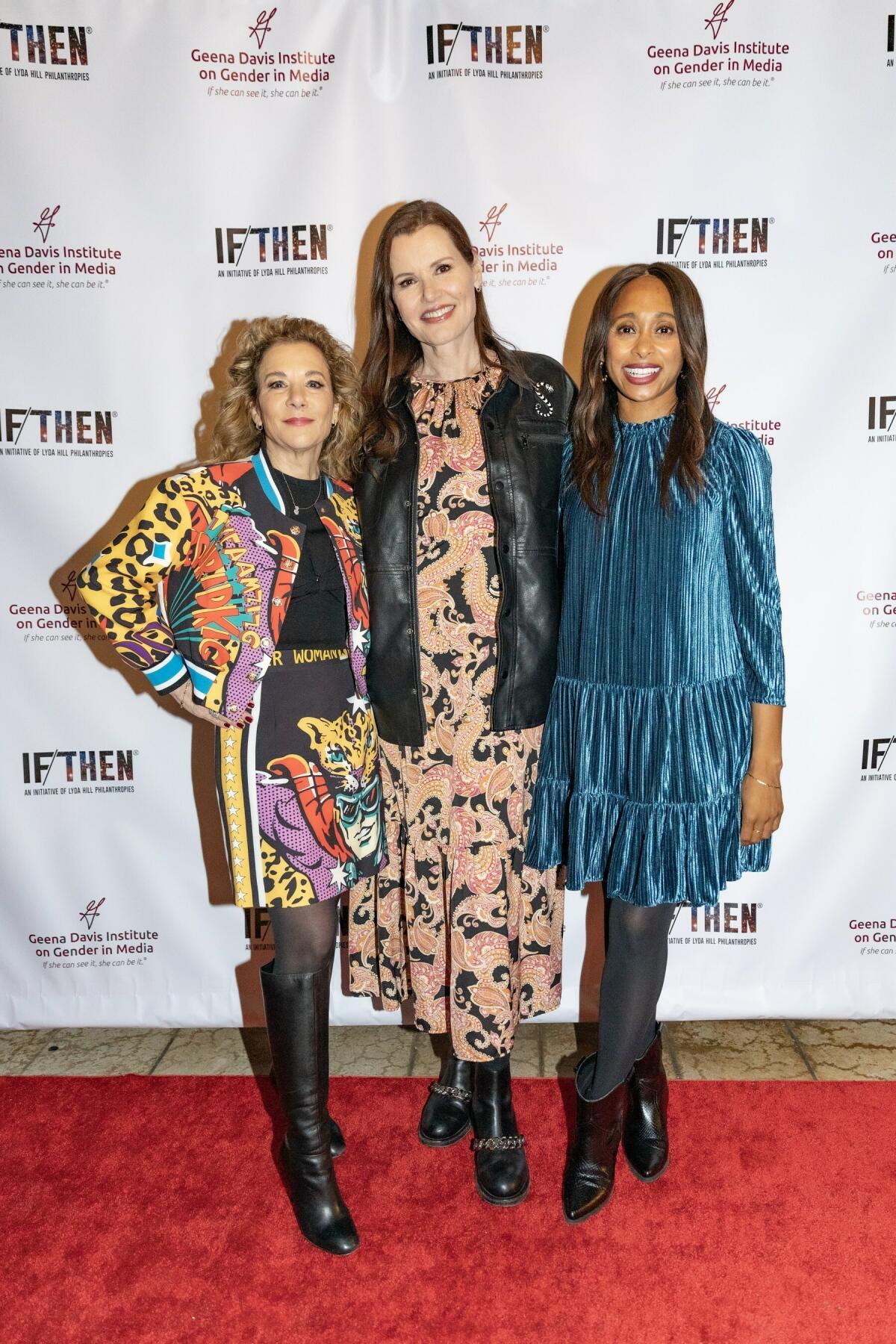Geena Davis Institute Publishes New Study Revealing Women in STEM Are Underrepresented in TV and Film
- Share via

New findings from the latest report by the Geena Davis Institute on gender in media reveal male STEM characters on-screen continue to outnumber female STEM characters, despite 71% of young women ages 11-24 agreeing it is important to have female STEM representation on-screen.
In collaboration with IF/THEN®, an initiative of Lyda Hill Philanthropies, the new study – “Portray Her 2.0, An Analysis of 15 Years of Women in STEM On-Screen, 2007-2022” – takes a closer look at the depiction of STEM characters in TV and film and outlines recommendations for improving diverse STEM representation across entertainment media.
Founded by Academy Award-winning actor Geena Davis, the Geena Davis Institute has worked to mitigate unconscious bias and reduce negative stereotyping in entertainment and media since 2004 and provides direct guidance and thought leadership on increasing representation across gender, race/ethnicity, LGBTQIA+, disability, age and body type.
“When children turn on their screens, the characters they see – or don’t see – send a powerful message about who matters and who doesn’t and about what is considered possible and what is not,” said Davis. “As members of the entertainment industry, we have the opportunity to move past our longstanding default ideas about who should fill a STEM character role – and motivate more girls and women to emerge as future STEM leaders and pioneers.”
The findings were debuted at an in-person event in Los Angeles on February 12. The Institute was joined by actors, STEM professionals, industry leaders and more, including Miranda Cosgrove, host and executive producer of Mission Unstoppable, Dr. Rae Wynn-Grant, co-host of Mutual of Omaha’s Wild Kingdom Protecting the Wild, Melissa Navia, actor, Star Trek: Strange New Worlds, and Sara Scott, executive vice president of production development, Universal Pictures, who joined panel discussions to weigh in on the importance of female STEM representation on-screen.
Findings from “Portray Her 2.0” revealed:
- There has been little change in the amount of female STEM characters since 2007 with 37% in 2007-2017 and 38% of STEM roles portrayed by women from 2018-2022.
- From 2018-2022, STEM characters of color increased to 42% of all STEM roles compared to 29% in 2007-2017.
- From 2018-2022, women were shown in more diverse STEM fields with an increase in female characters shown as engineers (2% to 13%) and computer scientists or programmers (7% to 15%).
- 72% of women of color reported that characters of color like Shuri and Riri Williams in “Black Panther: Wakanda Forever” had a positive influence on their interest in STEM.
“We are thrilled to support a study that explores this important topic, especially one that has a direct impact on shaping the next generation of STEM innovators,” said Nicole Small, CEO of Lyda Hill Philanthropies and co-founder of IF/THEN. “We are firm believers that science is the key to solving most of our world’s problems, and ensuring that women have an equal opportunity to succeed in STEM fields is a vital piece of the solution. I hope this report will demonstrate there is work to be done to balance the representation of women in STEM careers to further a culture shift inspiring young girls to explore these professions.”
The Geena Davis Institute is the only global research-based organization working collaboratively within entertainment media to systemically increase the on-screen representation of six major identities: gender, race/ethnicity, LGBTQIA+, disability, age 50+ and body type.